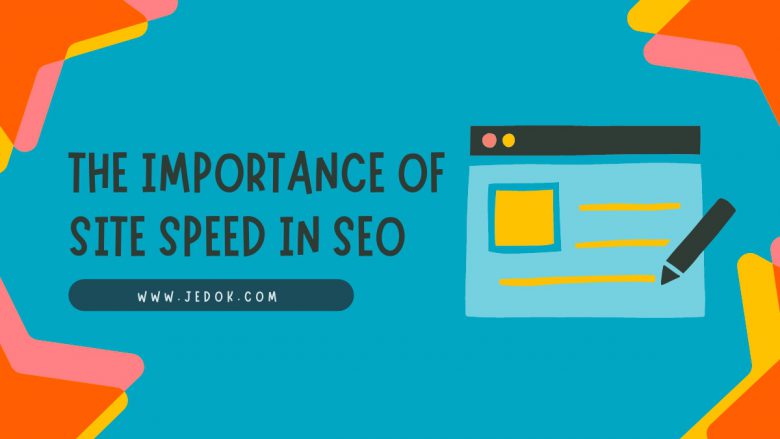
Site speed is a crucial factor in search engine optimization (SEO) that can have a significant impact on a website’s rankings in search engine results pages (SERPs). In this blog post, we’ll explore the importance of site speed in SEO.
1. User experience:
A website’s loading speed is an essential factor for providing a positive user experience. A slow load time can cause visitors to abandon the page, resulting in lost sales and leads. Site speed is also key to search engine optimization (SEO). Search engine algorithms prioritize websites with quicker page loads, which results in higher rankings on SERPs.
Google takes into account a variety of factors when ranking pages, including how quickly a website loads. The longer it takes for a page to fully load, the lower its ranking will be on search results pages (SERPs). Having slow loading times can significantly hurt a website’s visibility and impact organic traffic levels by reducing the site’s click-through rate (CTR). As such, webmasters and business owners need to prioritize improving their site speed when optimizing their SEO strategy.
2. Mobile optimization:
As smartphones become ubiquitous, so too does mobile optimization. Site speed is an important factor in optimizing a website for mobile users as it plays a critical role in improving the user experience. In addition to its importance in providing good UX, site speed can also have an impact on SEO rankings.
Google’s algorithms consider page loading times when determining where to rank a page, which means that faster sites are more likely to appear at the top of search results. This makes site speed an essential part of any successful SEO strategy; if your website is slow to load, it will be much less visible online than one with fast loading speeds. As such, businesses should prioritize improving their site speed if they want to maximize their visibility and boost their rankings on Google and other search engines.
3. Search engine rankings:
Search engine rankings are essential for a website’s success, as they determine how visible the website is to potential customers or visitors. Google has stated that site speed is an important ranking factor, meaning that websites which load faster are more likely to be higher in the search engine results pages (SERPs). As such, webmasters and marketers must understand the importance of site speed in SEO.
The website loading speed can have a significant impact on user experience and customer satisfaction. Visitors will quickly leave a site if it takes too long to load, which can lead to high bounce rates and lower conversion rates. Furthermore, websites with slower load times may not rank as high in SERPs due to Google’s algorithm taking into account page loading time when determining where sites should be placed.
4. Crawl budget:
Search engine optimization (SEO) is an important part of any website. It helps to ensure that your website can be found by potential customers. One key element of SEO is the importance of site speed to gain more visibility on search engines. A slow-loading website can affect your rankings negatively, and this is why it’s imperative to optimize your site for both speed and performance.
Another factor that can influence your SEO efforts is the crawl budget – the number of pages a search engine crawler can crawl and index on your site. Site speed has a major impact on how quickly these pages are crawled, which in turn affects how quickly they are indexed and ranked by search engines.
5. Competitor advantage:
It’s no secret that website speed is important when it comes to SEO. Not only does a slow-loading site negatively impact user experience, but it can also lead to reduced search engine rankings and lost opportunities for potential customers. But did you know that site speed can also provide a competitive advantage? If your website loads faster than your competitor’s sites, you may be more likely to draw in users and land them on the page they need to complete their goals. Site speed can therefore become an integral part of any successful SEO strategy.
In addition to improving user experience, there are several other ways in which site speed provides a competitive advantage. For example, Google has stated that they prefer faster websites for their search engine results pages and will rank them higher than slower sites as long as all other factors remain equal.
Conclusion
Site speed is a critical factor in SEO that can impact user experience, mobile optimization, search engine rankings, crawl budget, and competitive advantage. To ensure that your website is optimized for site speed, you should regularly analyze your site’s speed using tools like Google’s PageSpeed Insights or GTmetrix, and make any necessary improvements to improve your site speed and ultimately improve your SEO.


